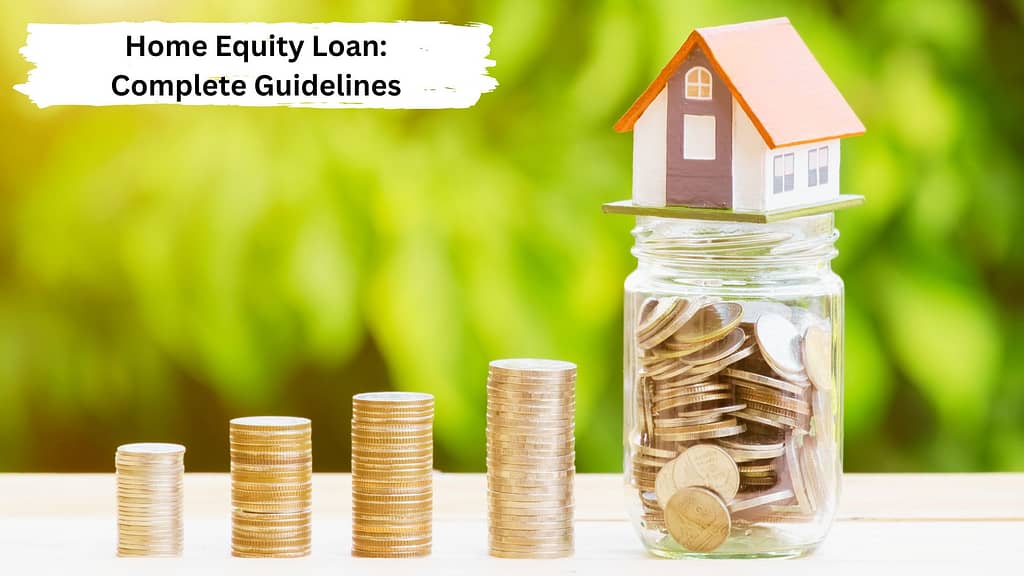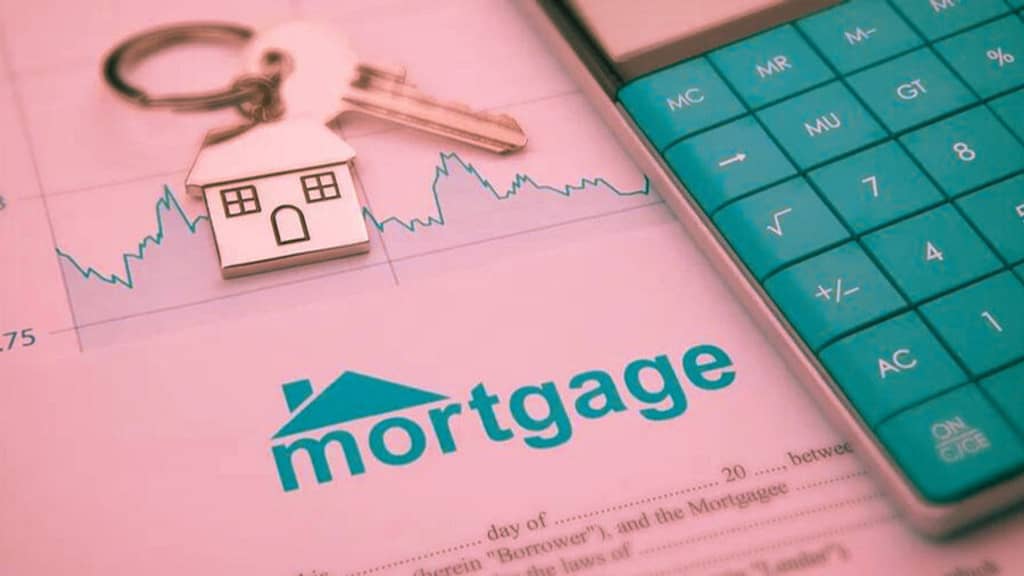Increasing Your House: A Whole Guide to Home Renovation Financial Loans
In the world of homeownership, renovations are often necessary in order to create the perfect living environment for oneself. Updating a kitchen, remodeling a bathroom or adding an extension can make any home more comfortable and functional while also increasing its value.
But funding these projects can be overwhelming for many people. For this reason, there is such a thing as home renovation loans which provide tailored financial solutions that can turn dreams about renovating into reality.
In this article we shall look at everything there is to know about home renovation loans starting from different types available all through their eligibility requirements and application processes up until frequently asked questions – armed with knowledge gained after reading this comprehensive guide homeowners will have what it takes to succeed in their own renovations!
Introduction to Home Renovation Loans
Home renovation loans are meant to help homeowners improve their homes by providing them with funds necessary for carrying out various projects aimed at enhancing living spaces.
Whether you want to update worn-out features, increase energy efficiency or even expand your house’s footprint; these loans offer flexible financing options designed around different needs as well as budgets thus enabling one easily turn his/her house into that dream home they’ve always wanted!
Types of Home Renovation Loans
Personal Loans for Home Renovations:
These types of personal loan products give individuals lump sums which they can then use towards financing any type of improvement works within their residences. They usually come with fixed interests rates charged over specific periods time during which borrowers must pay back all monies borrowed added on top interest accrued thereon meaning people will know exactly how much should be paid each month without having tap into equity tied up within homes like is case some other alternatives available out there today.
Home Equity Loans:
This option allows borrowers borrow against equity held by them on properties owned personally thereby ensuring that such persons get access large amounts money quickly when need arises most especially since lenders usually charge lower rates interest compared with other types loans; however, there are specific requirements must be met before one qualifies for this particular kind loan.
Home Equity Lines of Credit (HELOC):
This is form revolving credit where homeowners are given ability draw down funds as they see fit without incurring any additional costs or penalties associated with borrowing more than what has been approved under limit set by lender at time approving HELOC application – just like using credit card! It means that people have flexibility terms how much cash can each month also making them ideal choice if someone has ongoing projects going on or even expenses incurred overtime period.
FHA 203(k) Loans:
These government-backed financial aids were designed specifically cater needs those looking invest fixer-upper houses hence not only do these allow individuals finance purchase property but also cover cost refurbishments within single mortgage which makes it very attractive option many buyers who might otherwise lack sufficient capital required carrying out such renovations themselves.
Income Confirmation: A lender can ask for proof of income in order to be sure that the borrower can make monthly loan payments.
Debt-to-Income Ratio: Lenders calculate a person’s debt-to-income ratio (DTI) to decide if they can afford a new loan.
Home Valuation: Some home loans require an appraisal to determine the property’s current market value and how much equity the homeowner has.
How to Apply for a Home Improvement Loan
Applying for a home improvement loan involves the following steps:
Research Loan Options: Look into different types of loans and lenders, such as banks or credit unions.
Gather Documents: Collect necessary documents like pay stubs, tax returns, credit reports, etc., depending on the lender’s requirements.
Submit Application: Complete and submit the application form along with all supporting materials requested by the lender.
Approval Process: The lender will review your application package and either approve or deny it based on their underwriting guidelines.
Loan Closing: If approved, you will receive closing instructions from your loan officer. Once all conditions are met and signed, funds will be disbursed according to terms outlined in agreement.
Interest Rates & Fees
The interest rate on a home improvement loan is typically higher than that of a traditional mortgage due to its unsecured nature. The rates vary depending on several factors such as borrower’s creditworthiness, type of loan applied for, term length desired by borrower etc. Common fees include:
Origination Fee – charged by some lenders when processing applications; usually equal to 1%-2% of total amount borrowed;
Closing Costs – fees paid at settlement excluding prepaid items (e.g., insurance premiums); includes things like attorney fees, title search charges etc.;
Interest Rate – expressed as an annual percentage rate (APR); represents cost over time expressed as percentage of principal balance owed each year;
Using Home Equity for Renovations
Homeowners have two main options for using their home equity to finance renovations: a home equity loan or a home equity line of credit (HELOC). Benefits include:
Lower Interest Rates: Home equity products typically offer lower rates compared with personal loans or credit cards;
Potential Tax Deductions: Interest paid on loans secured by real property may be tax deductible under certain conditions. Homeowners should consult their tax advisor regarding potential deductions related to financing improvements through either type of product mentioned herein;
Flexible Repayment Terms – borrowers can access funds as needed within specified draw period usually 5-10 years followed by repayment period up to 20 years.
Government-Backed Renovation Loan Programs
The Federal Housing Administration (FHA) offers several programs that provide financial assistance for improving homes. Key advantages are:
Financing Simplicity: FHA 203(k) program combines purchase and rehab costs into one mortgage loan, simplifying application process for buyers seeking fixer-uppers;
Low Down Payment Requirement: FHA loans have lower down payment requirements compared to conventional mortgages, making it easier for people with limited cash reserves or first-time buyers who lack substantial savings accounts;
Flexible Credit Criteria: FHA guidelines allow lenders more flexibility when evaluating borrower’s creditworthiness which can benefit those working towards rebuilding positive rating history after experiencing setbacks such as bankruptcy discharge etc.
Renovation Loan vs Personal Loan
Choosing between these two types of financing depends on factors like:
Purpose – renovation loans are meant specifically for fixing up properties while personal ones can be used freely without restrictions imposed by lender;
Interest Rate – typical yearly percentage rate associated with unsecured debt tends to be higher than those tied against tangible assets owned outright i.e., house car etc., therefore making them costlier over time due mainly because no collateral offered protection against default risk assumed by issuing institution;
Amounts Borrowed – size limits vary greatly depending upon individual’s ability qualify based upon income level achieved during any given year along other criteria stipulated within agreement reached between parties involved in transaction;
FAQs
What is a home renovation loan and how does it work?
A home renovation loan provides funding for repairs, improvements or additions to an existing property. The borrower receives cash upfront in one lump sum which is then repaid over time with interest.
What types of loans are available for home renovations?
There are many different options when it comes to financing your project including personal loans, lines of credit and mortgages specifically designed as construction loans among others.
Which loan option should I choose for my renovation project?
The type of financing you select will depend on various factors such as the size and scope of your remodel along with personal preferences regarding repayment terms, interest rates etcetera.
What are the criteria for home renovation loans?
Commonly, eligibility conditions will ask for a minimum credit score, proof of income, debt-to-income ratio and property appraisal.
How do you apply for home renovation loans?
To apply, you need to research loan options, gather documentation, submit your application and wait for approval before receiving funds.
What are the interest rates and fees on home renovation loans?
Various factors like creditworthiness or loan terms can influence costs; therefore different types of loans have different interest rates and fees.
Can I use my home equity to finance renovations?
Yes. Homeowners can tap into their property’s value through either a home equity loan or HELOC (Home Equity Line Of Credit). These options offer favorable terms as well as flexibility in use which includes funding any remodeling project.
Are there any government-backed programs that help with this kind of financing?
One example is FHA 203(k) loans – they allow buyers to wrap up purchase prices together with repairs needed at closing time into one single mortgage. This comes with low down payments among other perks such as flexible credit requirements.
Is there another type of loan besides personal ones specifically meant for improvements around the house?
Yes. Renovation loans differ from personal ones in several ways including lower rates charged per annum plus larger amounts offered to borrowers who qualify based on their needs assessment vis-a-vis supposed budgeting constraints but it will always depend upon each person’s situation since everyone has different preferences when it comes to these matters anyway!
How long does it take before getting approved for a loan like this?
The period taken could be anywhere between few hours up until several weeks depending on what institution is giving out money and how fast one provides all required information while applying – some lenders approve applications instantly if certain criteria are met thus shortening approval timeframes significantly especially where speed matters most during emergencies but generally speaking; faster responses tend occur when dealing with smaller amounts being sought after by individuals who can easily repay back within agreed terms.
Conclusion
Home renovation loans help homeowners to make necessary improvements on their properties so as to ensure that such homes become habitable and at the same time appreciate in value over a certain period of time.
Whether one wants to remodel his/her kitchen or bathroom or even undertake energy efficient upgrades; there are many different types of loan products available for selection depending on individual financial circumstances and needs analysis.
By knowing about various categories under which these funds fall into, qualifications required when applying for them, steps followed during application process as well as frequently asked questions by potential borrowers – any home owner will be able embark confidently on their own renovating journey while still achieving desired outcomes within shortest possible duration.
All that is needed now is appropriate financing which could turn out be your dream come true.




